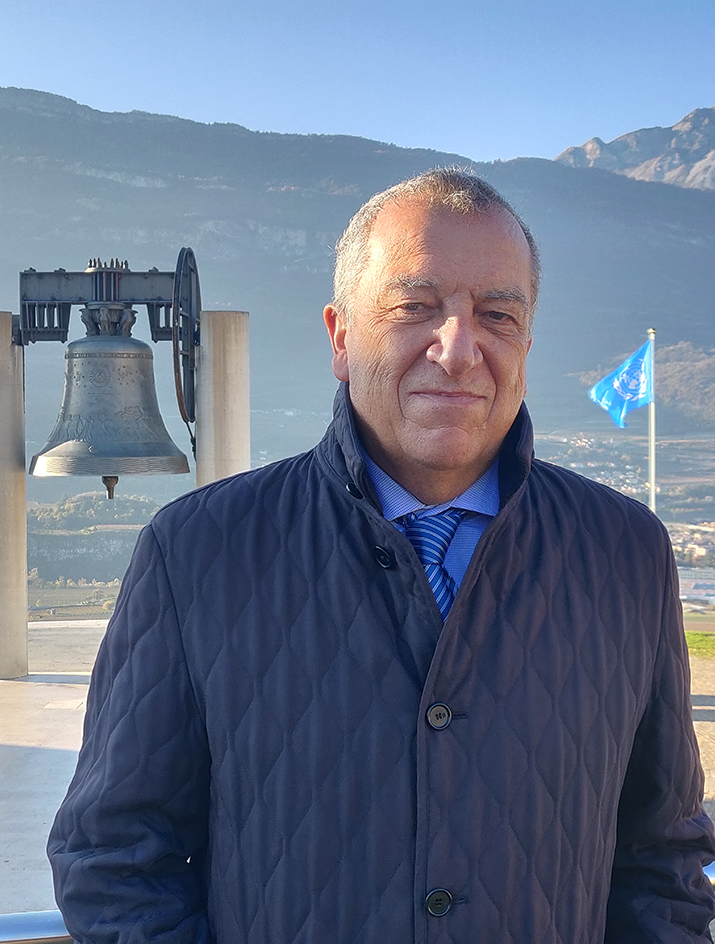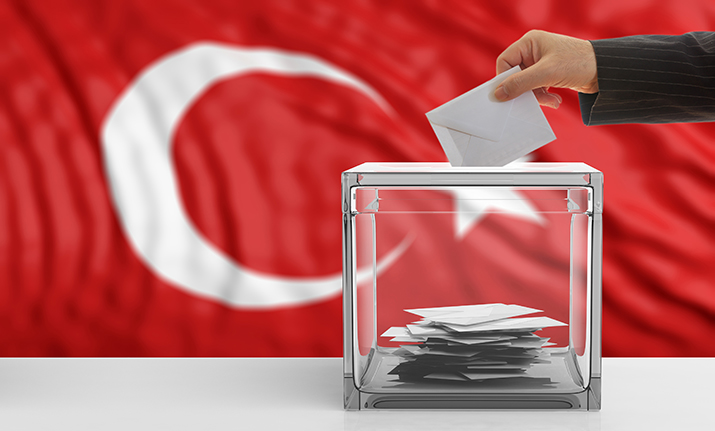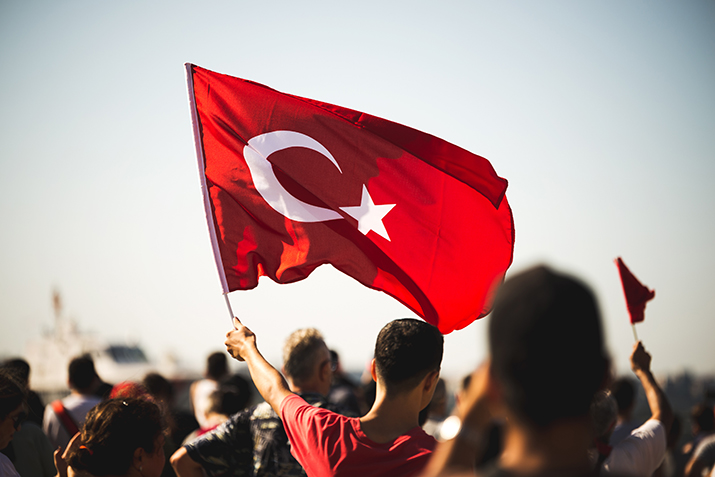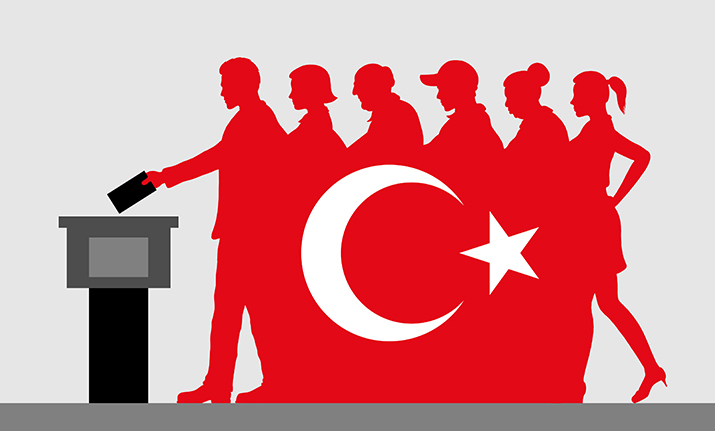That the results of so-called «local elections» often end up rewarding the parties which are in opposition on a national scale is a well-known phenomenon in almost all countries and democracies.
Due to the fact that they often take place in the intervals of political sessions, they pick up on citizens' dissatisfaction with "vote-catching" promises not fulfilled by the Executive in power, such as the drop in unemployment, the control of public debt or improvements in healthcare or schools. Even though they do not have an impact on major international issues, the results of the local elections (especially if they represent several regional realities) are no longer taken lightly by experts and political analysts as in the past but are considered to be well-founded "forecasts" of possible changes in the mood of the electorate.
For this to happen, of course, the presence of fair and free elections is necessary.
Few doubts can in fact exist in relation to the fact that in Belarus, Nicaragua or North Korea (to cite a few but pertinent examples) every type of competition (including for instance that of block manager where it exists) will end with the inevitable, bombastic affirmation of a representative of the regime, as autocracies cannot allow the monolithic pyramid of power to be questioned in the slightest, at any level of the hierarchical scale, even the lowest.
Returning to the subject of the local elections, on March 31st the voters of Turkey were called to the polls to express their preferences in relation to 81 provinces, namely the entire national territory. The observers sent by the Council of Europe described the voting procedures as «correct», except for sporadic and insignificant infractions that emerged during the electoral campaign.
The democratic opposition parties, who were defeated in the presidential elections last May, conquered just under half of the provinces (35) and metropolitan cities (14 out of 30), also prevailing with very clear advantages in the 4 major cities of the country, Istanbul, Ankara, Izmir and Adana.
The main component of this group, the «Republican People's Party» (CHP) has overtaken the pro-government «Justice and Development Party» (AK Party) in terms of percentage of votes obtained, 37.7 percent against 35.5, for the first time in its history.
On the negative side of the scale, it must be recognized that the AK Party's loss of consensus is also the result of the undeniable affirmation of Fatih Erbakan's «New Welfare Party» (YRP). This acronym, a decidedly misleading but faithful translation from Turkish into English, identifies the party with the greatest radical/Islamist and nationalist connotation, which has become the third absolute force in the country.
With the reassurance of this data, Mayor of Istanbul Ekrem Imamoglu, easily re-elected in his mandate as mayor, has authoritatively put himself forward to succeed "Sultan Erdogan" in the 2028 presidential elections, trusting that, in the meantime, the Turkish Law Courts definitively exonerate him from the ridiculous accusation of offending the institutions which had, in fact, prevented him from appearing last year, facilitating the reconfirmation of the current president. For his part, the latter - while giving top priority to the difficult economic situation of the country and denying a weakened general opinion towards him – absolutely acknowledged the defeat, inviting his supporters to engage in «self-criticism» and to draw lessons for the future.
In summary, even in Turkey the recent round of local elections has reiterated what we outlined at the beginning of the article. Upon reflection, this is a significant finding as it comes from a nation which, in the current geo-political context, deserves the – at times abused - qualification of "key" as regards the preservation of international structures and balances.
Let's review the most important features together:
- due to its geographical location, an indispensable hinge state between the "West" and the Islamic world, a role that is even more decisive in light of Iran's recent, direct involvement in the post-October 7 events;
- from 1952 to today, a convinced and reliable member of NATO, but very far from any prospect of joining the European Union;
- the only member of the North Atlantic Alliance (if we ignore Orban's "obstinacies") not to have complied with the sanctioned measures against Russia, on account of that position of ambiguous balance between the two contenders which allows Ankara margins of intermediation between Moscow and Kiev (in the case of the so-called «Grain Deal» crowned, it must be recognized, with an objective success);
- territory of (precarious) residence of millions of Afghan, Iraqi and Syrian refugees, among others of various nationality, for whom the Turkish authorities occasionally threaten the opening of the barriers and the consequent mass exodus towards European countries (which grant them substantial funding to facilitate their arrival and detention);
- regarding the question of the Middle East, has attested to positions of unequivocal condemnation towards Israel for its management of the situation in Gaza, without being able to deny the evidence of a serious problem of internal terrorism, especially on its southern borders (Hezbollah and PKK). In this regard and despite the documented atrocities, Erdogan does not appear to include Hamas, in light of his very recent meeting with the leadership of the movement.
In a recent edition of the «Voice» (number 42 of last February) we highlighted the particularity of 2024 as the electoral year par excellence, with 2 billion people called to vote. We also anticipated that from their overall outcome it would be possible to evaluate the resilience of democratic and liberal systems as well as their ability to cope with the disturbing phenomenon of the advance of autocracies and "managed democracy" in almost all continents.
From this point of view, the indication coming from Turkey must certainly be judged, albeit with some inevitable attenuation, as being pointed in the right direction. We trust that similar positive results will emerge shortly from the complex Indian electoral mechanism (one month in duration).
Reggente Marco Marsilli, Foundation President










